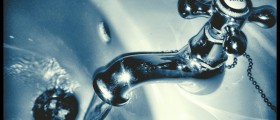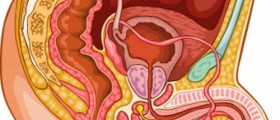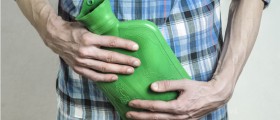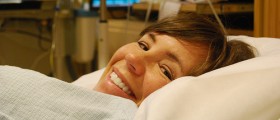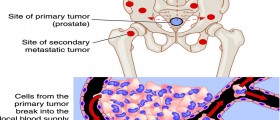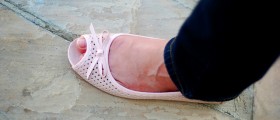Update: I found a doctor in Tampa that is trained at Mayo in HOLEP. Dr. Chandler Dora of Florida Urology Partners.
Loading...
Update: I found a doctor in Tampa that is trained at Mayo Clinic in HOLEP. Dr. Chandler Dora of Florida Urology Partners.
Loading...
this reply is to sharists, was your experience with doctor kuo, and your results postivive. what if any do you have any problems now.
Loading...
My experience with dr kuo was very satisfactory on several levels. First he was more than meticulus in my preop review re; my medical status. Second, he was painstakingly thorough during my procedure, actually spending my than three times the originally planned time on my procedure. Thirdly, I was dismissed the next day and went home with almost no subsequent bleeding, leakage, or, discomfort. I was pleasantly surprised.
Loading...
I must say thanks to all who have contributed to this thread. The wisdom and experience imparted here were valuable in my own decision to have a Holep and how to select the right doctor. Without the tips contained in this thread and elsewhere on this forum, I might not have gotten the expertise I needed. Here are some tips, if I may now in turn provide some, that may be useful for others.
1. I got several opinions on my condition, in all 5. Was my problem really just the BPH, or was there another condtion, e.g., weakened bladder muscles, damaged bladder wall, or some other obstruction involved? Tests conducted by a highly competent local hospital staff determined clearly that my bladder was totally fine and the sole cause of obstruction was the growth of the inner prostate tissue surrounding the urethra. This meant that I had a good chance of solving my problem with a Turp or Holep or other BPH procedure.
2. I researched the surgical options and discussed them with the urologists I saw, or spoke on the phone if too far. My original urologist recommended the traditional Turp (bi-polar electric loop) and offered to perform it. It was while reading about Turp that I first came across Holep. The latest studies and data from the Mayo Clinic and elsewhere gave me a Turp/Holep comparison that was on balance in favor of Holep: Holep is less invasive, needs a bit more operating time while anaesthetised (not a big point, really), is less bloody and thus has less transfusion risk, sears the blood vessels to prevent bleeding, requires shorter hospitalisation and catheterization, entails statistically less risk of re-operation down the road, and is equally durable long-term. Because the prostate lobes are attached to the prostate capsule by a connecting membrane, the Holep enables a cleaner and more complete removal of the prostate lobes with less risk of damage to the capsule: each lobe is peeled away in large pieces and in its entirety (not whittled or sliced off in small pieces as with traditional Turp). Unlike Turp, with Holep all the tissue is removed via morcellator, which means less risk that pieces of tissue remaining inside will block urination later. Moreover, the removed tissue is obtained for pathological testing. For me, a lay who two months ago had no idea what a Holep (or a Turp for that matter) was, the message was clear: With the right doctor, the benefits of Holep made it a better choice for me than a traditional Turp.
3. So I wanted to find the “best” doctor (i.e. most experience with Holep) available to me. While even in the U.S. the Holep is still not widely available, in Switzerland, where I live, the dearth of Holep expertise was blatant. Some older urologists did not even know about Holep. The reality is that most experienced urologists offer what they were trained on and know how to do, which is Turp. Those doctors who do profess some familiarity with Holep may not be experienced enough. I read in various sources that a bare minimum of 20 to 50 Holep procedures is needed for a surgeon to reach the level of proficiency required to perform the operation expertly, and that this experience improves the more times the procedure is done. Some of the best doctors in this area have performed 1000 Holeps or more. I had difficulty locating a local urologist with a level of expertise that would give me comfort. And when I did find a competent urology team that is capable of performing a Holep, the waiting time of several weeks, while on a permanent catheter, was also a factor affecting my decision.
4. I recalled a tip I read on this thread that helped me decide: Someone recommended looking for a Holep practitioner at a reputable university urological clinic, and commented that the university clinics are often the ones with the necessary experience with newer procedures. After some searching, I found the University of Munich Urological Clinic in Grosshadern, where every day between 2 and 3 Holeps are performed. It was a 5 hour train ride away from home, and my insurance company told me they would not pay for a procedure outside of Switzerland, but those factors pale in comparison to the seriousness of the choice I had to make. Doctor Alexander Roosen at Grosshadern has done more than 200 Holeps and could operate on me the following week.
5. So I traveled to Munich for the Holep. I am now on day 2 post-op. I am 60 and had a prostate estimated by ultrasound to be approximately 95 ml in size. I had a catheter for the last two weeks prior because it was estimated that I had 750 ml PVR. The catheter has been removed, and I am literally pissing like a racehorse. Very glad (so far) that I had this done. In retrospect, the biggest obstacle to dealing with my BPH was my own mind, the anxiety about having an operation in that area of my body, and the tendency to put it off. Once again, thanks to all for the instructive thoughts on this thread.
Loading...
Hi Charlie! Welcome to the Post-Op group. It seems like so long ago since I had my surgery in Philadelphia (Dr. Das) - Actually it's just over 18 months. It's been quiet here on the thread but I hope those who were experiencing IC and drips are now off pads. As you probably read, you have probably read., expect some IC as long as 4 months but it will decrease a lot -trust me. Just wear the pads in case. They really are comfortable. Please check in every week or so to update us. We are truly an "international community" here ;-) And thanks for sharing the idea of checking med schools. Glad it worked for you. Sorry the insurance didn't cover it though.
Loading...
Charlie, thanks for your valuable update. I thought it was worth providing an update on my HoLEP performed in the UK 6 weeks ago by Mr Tevita Aho in Cambridge. I am extremely pleased with the outcome. My prostate was greatly enlarged and estimated at about 150ml by ultrasound. As I was retaining 800ml of urine out of 900ml pre-op my first urologist thought my bladder might be 'dead'. However urodynamics tests at a clinic in London showed it to be very strong. I was therefore referred to Mr Aho as it was decided HoLEP was the right treatment for a greatly enlarged prostate. I was catheterised overnight after the op and removal was almost painless and quick. I urinated easily within a few hours and retained nothing although there was a lot of blood as expected. The only pain was in the few hours after the op and of course burning sensation whilst urinating for the first week or so. Although told by the hospital that bleeding would stop in 3 days it actually took 5 weeks to completely stop although fairly mild after 2 weeks. Doing pelvic exercises made the bleeding worse so be aware of that so I stopped these for a while. I had no leakage at all and only the occasional 'urge' urination of a few drops. This has now stopped. I urinate now like a teenager and can make the bladder completely empty. My erections are as good as before the op and ejaculation is not completely retrograde. I have had no aches or pains in the groin area since the day of the op. Mr Aho said all three of my prostate lobes were enlarged. Tests on the removed tissue show no cancer. In summary it looks like the risk of problems is very low as long as the urologist has a lot of HoLEP training experience. I would certainly recommend he procedure to anyone with a greatly enlarged prostate as long as you check-out the experience of the surgeon.
Loading...
Loading...
daibell, I think the one thing all men looking at a possible Holep should do is exactly that: make sure the doctor has enough experience. From the patient's perspective, that is the key. Yours sounds a lot like my pre-op experience, only more. I only had an estimated 95 ml size prostate and 750 ml PVR, which is less than you on both counts. But on the day I had the catheter inserted 2 weeks ago, I could only pass 100 ml (and had 750 PVR). After the catheter was removed today, I peed in good racehorse fashion after only 15 minutes, and then about every hour or so since, with little bits of red tissue spurting through in the stream. After the Holep Dr. Roosen told me that 55 gr was removed, and said the capsule itself has to be accounted for, usually about 30 gr, and that the ultrasound measurements are not really that precise. One interesting thing today, while whizzing like a firehose this evening, it stopped suddenly like wham and I felt a blockage. It took about an hour to work it out, but there was a piece of prostate tissue the size of a small bean that had to pass. A bit scary, but I just continued gulping water and massaged it on through. Don't know why that was still in there, but there it was.
Loading...
Loading...
Intersting-- how much was the HoLep in Germany? Dr. Lingeman/Indiana University's total bill came to about $27,000- $20K for the hospital; $5K for Dr. Lingeman; & $1,300 for the Anesthesiologist.
Dr. Lingeman has performed about 2,500 operations-he told me that he could do them in his sleep. I laughed and said that was great, but I respectfully requested that he do it awake.
I also asked that he perform the operation himself (not a resident or anyone else). He agreed.
In regard to your willingness to pay the charge your self, I said the same thing--I was ready to write a check--in the end, I filed a claim with California Managed Care and we fought with the ins. co.-finally, they paid.
I agree wholeheartedly witht he approach you stated.
Bill in CA
Loading...
Hi Steve,
I live in Center City and I am a patient of Dr. Das, and I have discussed Holep and some of the other alternatives with him, but I need to make a decision and do something. Wondering if you would speak to me on the phone. Please let me know.
Rich
Loading...
Hi - I was aged 61 when I had Holep surgery on December 9, 2013. My prostate was 120 grams and I had real difficulty in urinating. Over 5 years I had been on Flomax (briefly-bad side effects); Hytrin (again briefly, better, but still bad side effects) and saw palmetto (pretty good and no side effects); and prostate Tea (good and also no side effects - used for three years). Symptoms started getting worse, so urologist put me on Avodart for 14 months at half dose (once every two days). Peeing manageable, but still difficult. Really bad side effects with Avodart (brain fog; difficulty sleeping, never a deep sleep; almost total elimination of sexual sensation (numb) in penis and nipples after three days and then continuing through the Avodart time period; skin problems (like excema) that developed on arms, legs, scalp, and forehead, very itchy and red and raw).
Initially offered a "Radical Prostatectomy)" which I researched, and did not like the abdominal incision, the possibility of being impotent or incontinent with that procedure due to nerve and muscle damage. After I researched the possibilities available and asked for it, I was finally offerered Holep laser surgery. Had it in December of 2013. Procedure went well, (removed 90 grams of 120 gram prostate). No cancer either (which they test for on removed tissue) thankfully. Also off Avodart from day of surgery, which was great.
I felt like I had been hit by a bus for about five months after the procedure energy-wise, though gradually improved over that time period. Blood in urine was pale from the start,(nothing to worry about) but continued slightly and intermittently for about 6 weeks. After that, gradual improvement all around. Sexual function all operational almost from start. As expected and warned about, retrogade ejaculation (not a big problem, but I do miss it a little). As doctor said "sex will be good but not great". Good is OK, when all the other benefits are counted in. Peeing well is great. Gradual healing from most of the Avodart side effects has been great as well. Some sexual sensations (lost from Avodart, not the surgery) are still gradually coming back, but most are on track.
Keegel exercises to strengthen the remaining sphincter muscle (which had not had much to do over the last five years) initially irritated the results, but later helped. Used enormous numbers of pants and pads at first. After seven months I am still using pads when I go out 'just in case' (sometimes I am dry, other times I need them) and around the house I use light "dribble" pads when I can easily get to a bathroom. My doctor warned that the remaining sphincter muscle at the bottom of the prostate (the one at the bottom of the bladder is removed during the Holep procedure) has to "do all the work" now. Mine was checked by scope and should be OK, as it works well and is intact, but the continuing dribbles and occasional leaks are frustrating, though overall the continence is far better than earlier, and using far, far, fewer pads etc. Continuing with Keegle exercises. Also been getting through the night (after complete voiding) without any pads at all, which was a huge milestone and relief. Lying down good; Sitting pretty good; but standing or working in the garden or moving boxes, or out for meetings or long drives I do need pads for. With so much tissue removed I found that, initially at least, that my 'signals' for peeing and bowel movements were hard to tell when they needed to be 'listened to' (and which ones they were). But that did slowly improve and is OK now.
I do not feel that I was prepared properly for after-surgery results. Though the nurses were good and the hospital fine generally, the information and recuperation preparedness was not good. (I was sent home with ONE pad by the nurses at the hospital, and few instructions) We were not prepared for the pants, pads etc for the following three weeks which were the most difficult to get though, requiring a lot of rest and afternoon naps. The good thing was there was essentially no pain from the procedure, apart from the catheter being removed at the hospital
Even with the continence issues still hopefully improving (I will see the surgeon in early September 2014 for another check-up) I am still happy to have had the surgery. It was the only option for me, considering the size of the prostate; it got me off the medications, and I feel that my thinking is again sharp; I can sleep deeply for seven hours at a stretch; there was no exterior scarring which I like a lot; and my sex life continues, which was exceedingly important to me.
I do wish that I was like the others who reported that they were back at work in two weeks (not an option for me at all - I have been off full-time for about three months and half time since then, but expecting to be back at full time in a month or so) but still happy that I had the surgery. Thanks to an understanding and supportive wife through all of this. That helped a lot.
I wanted to report all this because I had been on this and other sites prior to the surgery to prepare myself, and I did not hear of these exact experiences from anyone else. It helped me a lot to have read other guys' experiences of the procedure, so thank you to everyone who has posted on this site. Knowing what to expect always makes it easier to get through a difficult situation. My overall experience is that it is a lot better after having had the surgery.
Loading...
Hi Charles - Sorry to hear things moving slower for you than others. But sounds like on the road to recovery. I can only offer one suggestion - though it may be irrelevant. I was doing the Kegels (that's how it's spelled, though I know what you meant) and not getting reluef at first. Dr. suggested I use biofeedback session to actually SEE (on the graph if I was doing them right for # and length. I had the nurse hook me up and show me,. After 2 biofeedbacks I was get better quicker. So, have yiou tried that? I'm guessing that your surgery was not done locally near where you live if not seeing surgeon for 3 more months. (right?). I saw mine (here in Philly) every 2 weeks till filly recovered. Then 6 months. Now once a year.
BTW, I had a nice long conversation with Rich who posted here on Friday and I think I was able to answer his questions re: Dr. Das here in Philly and let him know what to expect. This is one of the most useful "newsgroups" I belong to and yiu guys have shared openly.
Hang in there Charles it WILL get better and I like your report that you can sleep through the night!
Loading...




